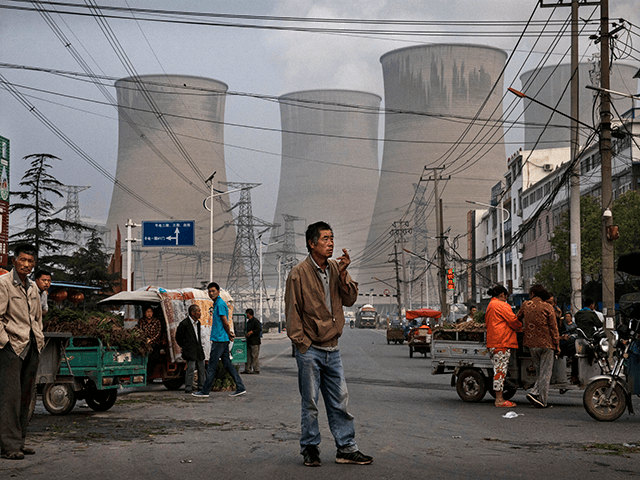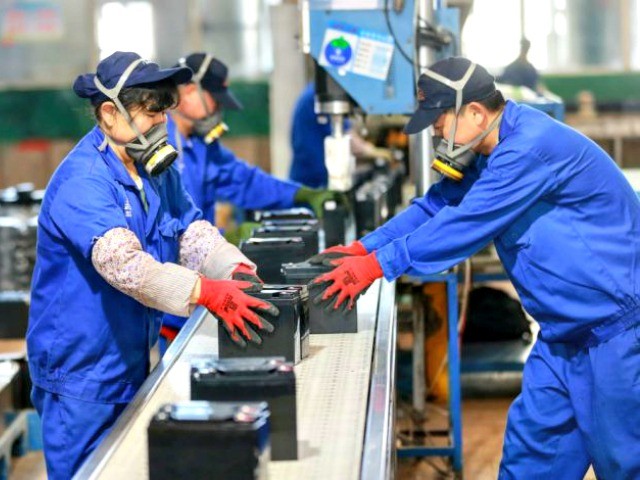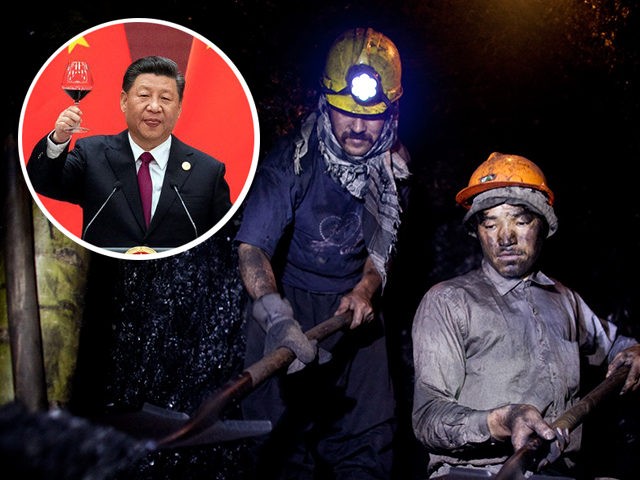In the course of hectoring the United States for its “bungled and embarrassing withdraw from Afghanistan” on Thursday, China’s state-run Global Times admitted Beijing has a rapacious interest in Afghanistan’s vast rare-earths mineral resources and snarled it was none of America’s business if China makes deals with the Taliban to get what it wants.
The Global Times accused the U.S. of profiteering from Afghanistan for the past twenty years, without offering any theories on where all the plunder might have gone, and claimed America is only worried about China going after those mineral resources because the U.S. is jealous:
Rare-earth metals in Afghanistan were estimated to be worth anywhere between $1 trillion and $3 trillion in 2020. China may “align itself with Taliban and try to exploit Afghanistan’s rare-earth metals,” US media outlet CNBC reported on Tuesday, citing an investment analyst’s so-called “warning.”
The US has spent 20 years on its “anti-terror war” in Afghanistan, investing a huge amount of resources to support the government. It’s not hard to imagine that there are huge economic considerations behind this. Over the past two decades, US firms have enjoyed privileges in exploiting rare resources in Afghanistan. The US troops’ withdrawal and the drastic change in Afghanistan’s situation is undoubtedly a heavy blow to US economic interests in Afghanistan and the wider region. With many US businesses leaving due to losing their protection, the US may instead choose to obstruct future cooperation between Afghanistan and other countries. We cannot rule out the possibility that the US could launch its notorious sanction measures again to protect its economic interests in the region after US troops’ withdrawal.
However, the US is in no position to meddle with any potential cooperation between China and Afghanistan, including on rare earths. The so-called “warnings” in the CNBC report show that American firms doing business in Afghanistan are dissatisfied with Washington’s hasty evacuation and therefore the loss of their “privileges,” and it also reveals the US’ fear of possible advancement for China with regard to the rare-earth sector. After all, China has a much better track record in successfully cooperating with developing countries around the world.
One reason China’s propagandists are so peeved at the CNBC report mentioned above is that one of its contributors, AllianceBernstein director of emerging market debt Shamaila Khan, said it was a “very dangerous proposition for the world” to let the Taliban (and, by extension, its new best friends in Beijing) control those much-needed minerals.

Taliban fighters stand guard in front of the Hamid Karzai International Airport, in Kabul, Afghanistan, August 16, 2021. Thousands of people packed into the Afghan capital’s airport on Monday, rushing the tarmac and pushing onto planes in desperate attempts to flee the country after the Taliban overthrew the Western-backed government. (AP Photo/Rahmat Gul)
“It should be an international initiative to make sure that if any country is agreeing to exploit its minerals on behalf of the Taliban, to only do it under strict humanitarian conditions where human rights, and rights for women are preserved in the situation,” Khan said.
China is reliably enraged by discussions of its human rights abuses and rejects all Western efforts to hold it, or its allies, to high standards. Chinese propagandists portray the international human rights establishment as a scam designed to keep developing nations from reaching their full potential.
The Global Times added that China is skilled at mining rare earths and desperately needs them to fuel its industrial growth, so the civilized world should withhold its criticisms of whatever deals Beijing strikes with the Taliban to exploit those resources – or to preserve its massive existing investments in Afghanistan, such as the $4.2 billion Anyak copper mine, the China National Petroleum Corporation’s oil projects, $550 million in annual bilateral trade, and $630 billion in infrastructure projects.

Chinese street vendors and customers gather at a local market outside a state-owned coal-fired power plant near the site of a large floating solar farm project under construction by the Sungrow Power Supply Company on a lake caused by a collapsed and flooded coal mine on June 14, 2017, in Huainan, Anhui province, China. (Kevin Frayer/Getty Images)
“As the largest neighbor of Afghanistan, China is a vigorous partner for the war-battered country to get its economy back on track, given China’s experience and capability in related areas, such as agriculture and industrial infrastructure,” the Chinese Communist newspaper lectured. “By sharp contrast, U.S.-led predatory resource exploitation in the country has not delivered tangible benefit to ordinary Afghan people or benefits to the nation’s economic growth.”
India’s Business Standard noted on Thursday the rare earths China desires “are a key component for a host of advanced technologies like iPhones and hi-tech missile guidance systems,” as well as “rechargeable batteries for electric and hybrid cars, advanced ceramics, computers, DVD players, wind turbines, catalysts in cars and oil refineries, monitors, televisions, lighting, lasers, fiber optics, superconductors and glass polishing.”
The Business Standard observed that China is already the world’s top supplier of rare earths and controls about two-thirds of the global supply, so seizing Afghanistan’s minerals will help Beijing preserve its monopolistic position by making it harder for other countries to decouple from Chinese supply lines.

In this undated photo, employees work on a battery production line at a factory in an eastern Chinese province. (STR/AFP via Getty Images)
Afghanistan could become an especially important source of lithium, which is crucial for building electric car batteries. The largest established reserves of lithium are in Bolivia, but the U.S. government believes Afghanistan could have even more if enough security and political stability is given to explore the country’s mineral resources.

COMMENTS
Please let us know if you're having issues with commenting.